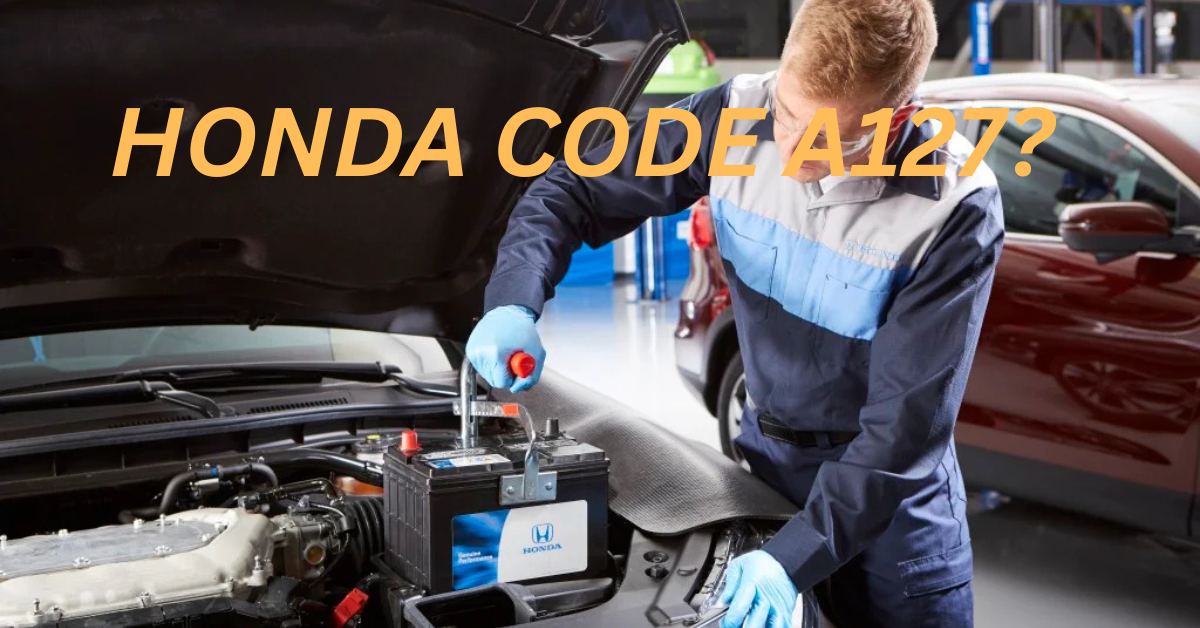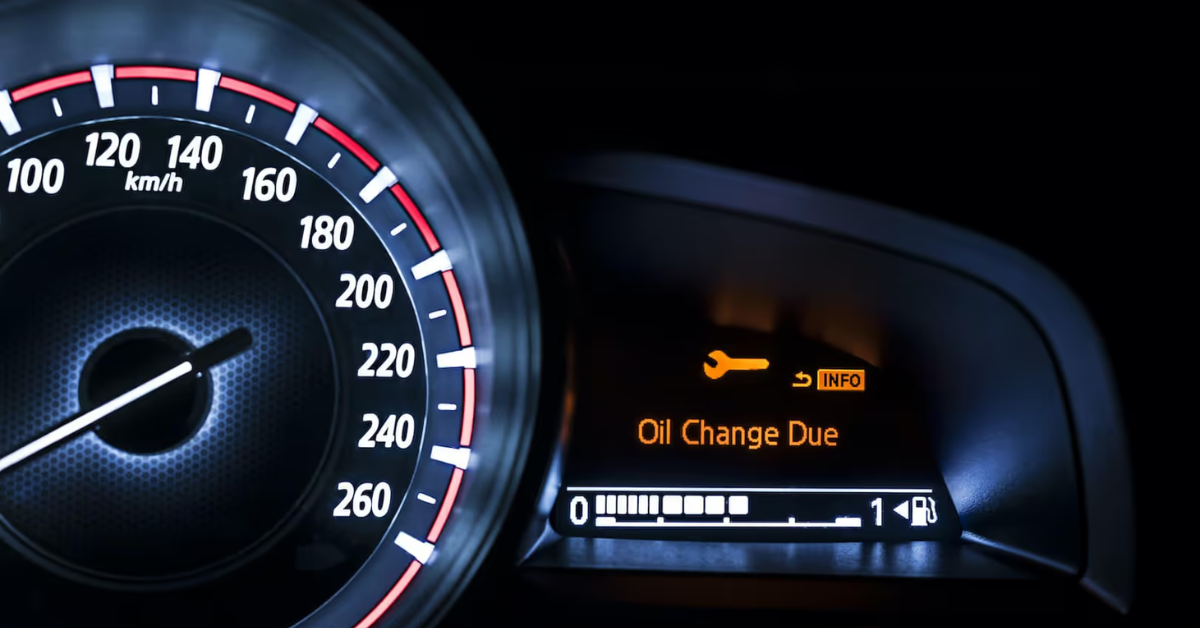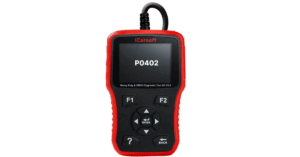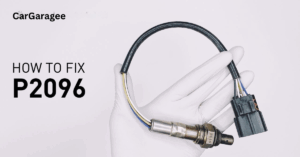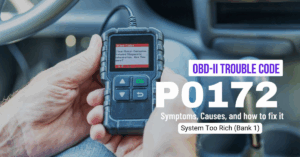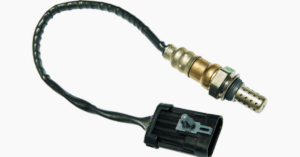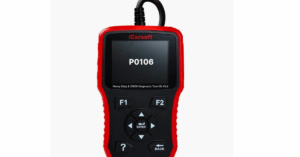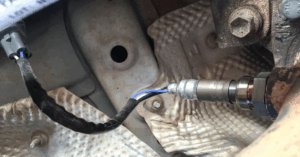The Honda Maintenance Minder Code A127 is an advanced vehicle alert system designed to help drivers maintain their vehicle’s optimal performance. The ‘A’ in the code signals that an engine oil change is due, while the numbers ‘1’, ‘2’, and ‘7’ correspond to tire rotation, air filter replacements (both engine and cabin), and brake fluid replacement, respectively.
This code is part of Honda’s intelligent system that goes beyond simple reminders by providing specific and timely maintenance recommendations based on driving conditions and mileage. By following the A127 code, drivers can ensure their vehicle remains efficient, safe, and reliable.
What Does Honda Maintenance Code A127 Mean?
The A127 code on your Honda is a smart, high-tech reminder that your vehicle needs routine maintenance based on mileage, time, and driving habits. It shows up on the dash and uses main codes and sub-codes to guide owners on what service their car needs. These maintenance minder codes are used across all vehicles from the Motor Company to flag tasks like oil change and filter changes.
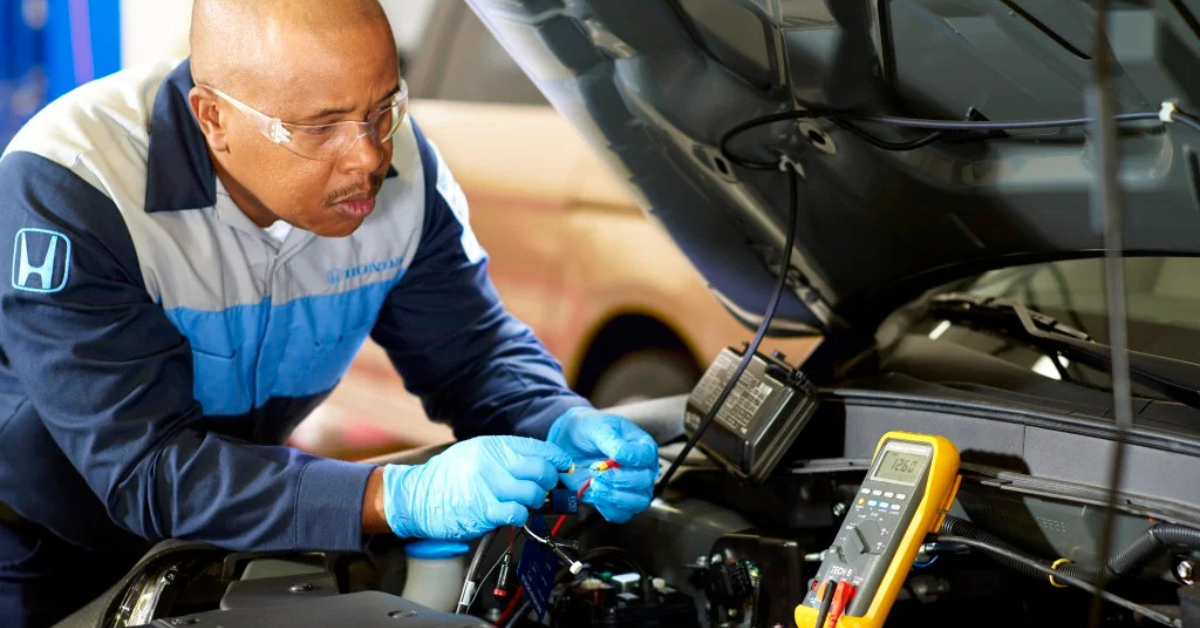
The A127 Service Code includes oil, engine air filter, cabin filter, tire rotation, tire pressure, tire condition, and brake fluid replacement. Depending on your model, the length since the last service, or the manufacturer’s recommended intervals, like 20,000 miles, you might see other codes like A17, B12, or 125. These general or specific tasks help your car wear evenly, run longer, and deliver optimum handling, comfort, and fuel economy.
What Does the Honda A127 Code Cover?
The Honda A127 service includes a set of essential maintenance tasks designed to keep your vehicle running smoothly and safely.
Keep Engine Running Right
The A127 service begins with fresh engine oil to ensure your vehicle runs smoothly. If oil levels drop due to a leak or age, your components may wear down, and the engine could overheat. It’s essential to drain the old oil and perform a proper replacement for optimal performance.
Rotate tires
Uneven driving force wears out tires fast, so rotating them keeps wear distributed equally and helps them last long. It also saves money by letting you avoid buying new ones prematurely. During this procedure, tire pressure checks are done to support handling and safety.

Replace Filters for Clean Air
Your cabin and engine air filters block harmful dirt, debris, and pollutants from entering the vehicle. A malfunctioning filter leads to more fuel consumption and worse gas mileage. Filters should be inspected and replaced based on your model, road pollution, and habits.
Flush Brake Fluid
Brake fluid keeps your braking system working when you press the pedal. Over time, it needs flushing, bleeding, and replacement to prevent contamination, corrosion, and weak stopping power. Honda suggests changing it around 30,000 miles or every 3 years (36 months).
Inspect Belts Before Damage
A worn drive belt can break and cause serious damage to your vehicle. It must be inspected regularly for cracks or stress. If needed, swap it early to avoid bigger problems and higher costs.
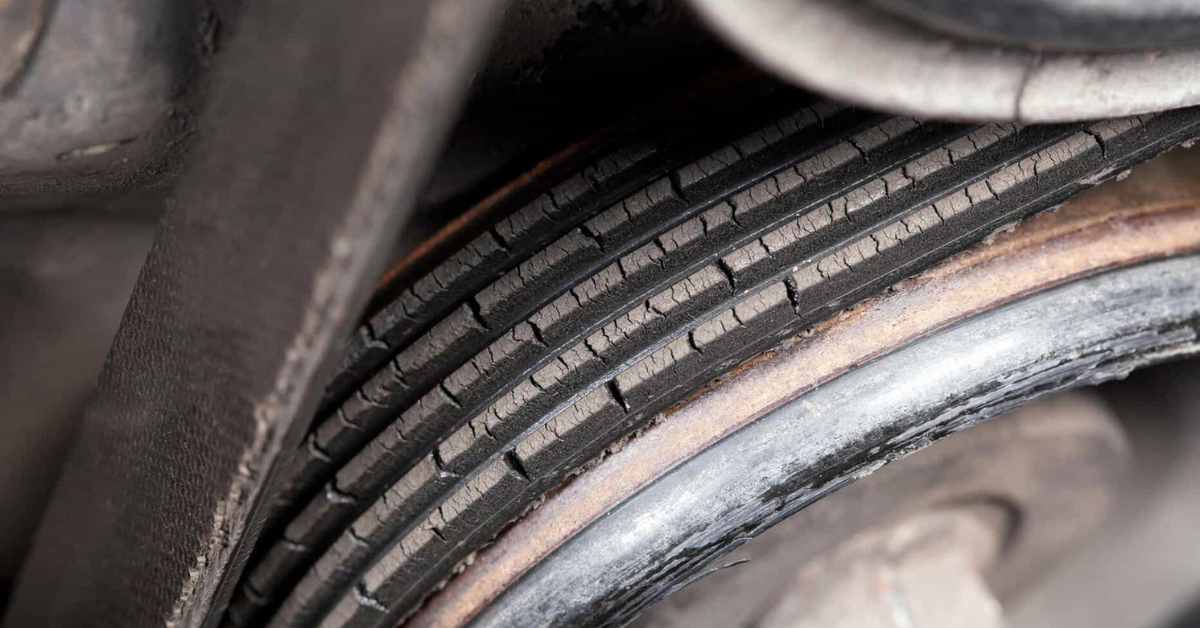
How the Maintenance Minder Tracks Real Needs
Many Minnetonka drivers used to rely on the owner’s manual and follow a basic maintenance schedule, but those are just estimates based on average habits. The Honda Maintenance Minder system uses sensors in the vehicle to read real information. It helps determine when routine service items like oil or tire care are truly needed, not just guessed by miles.
In places like Plymouth, I’ve seen the value of this system when a sub-code shows that brake fluid replacement is due. It means the braking system needs to be bled, drained of old fluid, and filled with fresh fluid. The car keeps running smoother with fewer surprises on your drive.
Oil Life Indicator
The oil life indicator shows helpful percentages:
Oil Life at 15 Percent – time to schedule your visit
Oil Life at 5 Percent – oil change is due
Oil Life at 0 Percent – it’s overdue
When Should You Get a Honda A127 Service?
The maintenance minder system in your Honda alerts you when it’s time to complete key services:
- Rotate your tires every 7,500 miles
- Change fluid (like oil) around 7,500-10,000 miles
- Flush brake fluid every 2 years or 30,000 miles
- Check and replace filters once a year, around 15,000 to 30,000 miles
These reminders are based on your driving and help you stay on track without guessing mileage manually.
To extend the life of your Honda, you should:
- Avoid carrying more than the recommended weight
- Don’t strain the car’s components
- Limit driving too fast or braking hard
- Steer clear of uneven or rough roads
These habits reduce stress on the engine, suspension, and brakes—keeping your car healthier for longer.
The chart below shows what type of service your vehicle may need at certain points. Each row includes tasks like Oil Change, Tire Rotation, Fuel Filter Inspection, and more based on months or miles driven.
Vehicle Maintenance Schedule
| Mileage / Time Interval | Recommended Services |
|---|---|
| 5,000 – 7,500 Miles | Tire Rotation |
| 10,000 Miles / 6–12 Months | Oil Change, Fuel Filter Inspection, Fuel Filter Element Replacement, Tire Rotation |
| 20,000 Miles / 6–12 Months | Oil Change, Oil Filter Change, Low-Pressure Fuel Filter Element, Suspension Inspection, Brake Inspection, Fluid Inspection / Replacement, Exhaust Inspection, Fuel Lines Inspection |
| 30,000 Miles / 18–24 Months | All 20,000-mile services plus Engine Air Filter Replacement, Cabin Air Filter Replacement, Transmission Fluid Replacement, Spark Plug Inspection, Drive Belt Inspection / Adjustment, Valve Clearance Inspection |
| 36,000 Miles / 3 Years | Fuel Tank Inspection |
| 40,000 – 50,000 Miles / 18–36 Months | Repeat earlier inspections (suspension, brake, fluid, fuel lines), Oil Change, Tire Rotation |
| 60,000 Miles / 30–36 Months | Full inspection and replacements repeated from the 30,000-mile mark |
| 70,000 – 80,000 Miles / 40–48 Months | Same pattern: Oil Change, Fuel Filter Element Replacement, Tire Rotation, full system inspections |
| 90,000 Miles / 54–60 Months | Engine Air Filter, Cabin Air Filter, Spark Plug, Drive Belt, Valve Clearance inspections |
| 100,000 Miles / 54–60 Months | Add Transmission Fluid Replacement, Exhaust & Fuel Lines Inspections |
| 110,000 Miles / 66–72 Months | Spark Plug Replacement, Timing Belt Replacement, Auto-Tensioner Inspection, Water Pump Inspection, Idle Speed Inspection |
| 120,000 Miles / 66–72 Months | A repeat of major inspections + Engine Coolant Replacement |
How Expensive Is the Honda A127 Service?
The Honda A127 service usually ranges from $290 to $465, with an average cost of about $377, depending on your dealership, mechanic, and selected parts. You can lower your total by doing some tasks at your garage using the right equipment like jack stands, wrenches, or a hydraulic jack.
Service Cost Breakdown
| Service Item | Estimated Cost | Parts Cost Range | Notes |
|---|---|---|---|
| Oil & Filter Change | $70 (average) | Varies by oil type | Synthetic oil may increase the cost |
| Tire Rotation | $30 – $45 | – | Extra if tire pressure check or balancing |
| Cabin & Engine Air Filter Replacement | $100 – $150 | Cabin: $15 – $35 Engine: $20 – $45 |
Total includes both parts and labor |
| Brake Fluid Replacement | $90 – $200 | – | Cost varies by service location and method |
Read More:
P0456 Small EVAP Leak? Here’s How to Fix It Fast!
How To Disable Limp Mode Permanently: [Step by Step Process]
Service Limits You Should Know for Honda A127
Mileage & Timing
The A127 service is ideally performed when your Maintenance Minder shows it or around every 7,500 to 10,000 miles. Doing it too early wastes resources, and delaying it risks performance issues.

Driving Conditions
If you often drive in dusty, humid, or extreme weather conditions, you might need some tasks (like air filter changes or brake fluid flush) done sooner than usual. But for light city or highway driving, follow the standard interval.
Vehicle Type & Age
Older Honda models or those with higher mileage may need more frequent inspections even if the minder doesn’t show the A127 code yet. Always consider the age and engine condition of your car.
Service Quality
Avoid resetting the A127 code without doing the actual service. It may hide pending maintenance and hurt long-term reliability. Also, using low-quality parts or skipping inspections can reduce the effectiveness of the service.
DIY vs. Certified Shops

If you’re doing A127 services yourself, be aware of your skill level and use the right tools. Improper fluid flushes or torque specs can cause more damage than skipping the service entirely.
FAQS
Q: What is the service code 127 on a Honda Accord?
A: The 127 code means your Honda needs an oil change (A), a tire rotation (1), engine and cabin air filter replacement (2), and brake fluid replacement (7).
Q: What is the Honda engine code A12?
A: Code A12 stands for oil change (A), tire rotation (1), and engine air filter replacement (2).
Q: What is the Honda maintenance code A13-7?
A: A13-7 means your Honda needs an oil change (A), tire rotation (1), transmission fluid change (3), and brake fluid replacement (7).
Q: What is the maintenance code 0127?
A: Code 0127 indicates a tire rotation (0 or 1), engine/cabin air filter replacement (2), and brake fluid replacement (7). The leading “0” is sometimes a placeholder or style variation.

Mian Hashir is a passionate automotive enthusiast and the lead author at Car Garagee, a website dedicated to providing in-depth car reviews, maintenance tips, and the latest news in the automotive world. With years of experience in the industry, Hashir combines his technical knowledge with a love for cars to deliver insightful and engaging content. Whether you’re a car owner or a curious reader, Mian Hashir’s articles help readers make informed decisions, from choosing the right vehicle to understanding how to keep it in top condition.

